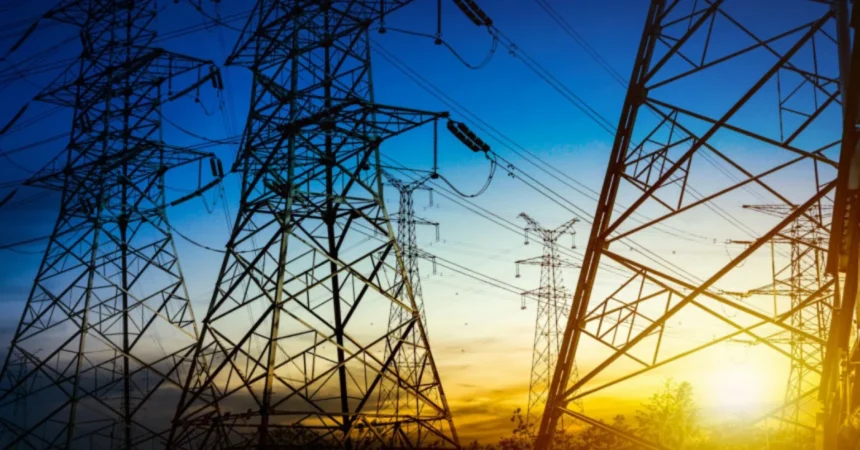Age of Electricity Coming as Fossil Fuels Set to Peak: IEA’s Energy Transition Forecast
The International Energy Agency (IEA) has predicted a groundbreaking shift in the global energy landscape, forecasting that the “Age of Electricity” will soon dominate the world as fossil fuels are expected to peak. In its comprehensive report, the IEA highlights the inevitable decline of fossil fuel demand, driven by international efforts to combat climate change and the rapid adoption of renewable energy. This transition signals a significant step towards cleaner energy, reshaping economies, industries, and the way we produce and consume power.
The Peak of Fossil Fuels
According to the IEA, the world is witnessing the beginning of the end for fossil fuels. Oil, gas, and coal, the primary sources of global energy for over a century, are set to reach their peak demand within the next decade. This shift is largely attributed to technological advancements in renewable energy sources, particularly solar, wind, and hydropower, and the growing consensus among governments and corporations to reduce carbon emissions.
While the world remains heavily reliant on fossil fuels, the report suggests that demand for these traditional energy sources will gradually decline as nations ramp up their efforts to meet international climate targets, such as those set by the Paris Agreement. The peaking of fossil fuel demand marks a critical juncture in the global energy system, paving the way for a cleaner, more sustainable future.
The Rise of Renewable Energy
One of the most notable trends highlighted by the IEA is the rapid rise of renewable energy. Over the past decade, renewable energy technologies have experienced significant growth, with solar and wind power leading the way. These technologies are not only becoming more cost-effective but are also being deployed at an unprecedented rate.
The declining cost of renewable energy has been a key driver of this transition. In many regions, the cost of generating electricity from renewable sources is now lower than that of fossil fuels. This cost advantage, coupled with government policies and incentives aimed at reducing carbon emissions, is accelerating the adoption of renewables.
As renewable energy becomes more accessible, it is expected to account for a growing share of the global energy mix. The IEA predicts that by 2050, renewables could supply as much as 90% of the world’s electricity, with solar power emerging as the dominant source. This transformation will not only reduce greenhouse gas emissions but will also help address other pressing issues, such as air pollution and energy security.
The Role of Electrification
A central theme in the IEA’s report is the increasing electrification of the global economy. Electrification refers to the process of replacing traditional energy sources, such as oil and gas, with electricity for a wide range of applications, including transportation, heating, and industrial processes. This shift is essential for achieving deep decarbonization and is expected to play a crucial role in reducing the world’s reliance on fossil fuels.
The transportation sector, in particular, is undergoing a significant transformation. Electric vehicles (EVs) are becoming more popular, with automakers around the world investing heavily in EV technology. Governments are also implementing policies to encourage the adoption of electric cars, such as offering subsidies and building charging infrastructure. As a result, the demand for oil in the transportation sector is expected to decline, further contributing to the peak of fossil fuel demand.
In addition to transportation, electrification is making inroads in other sectors, such as heating and cooling. Electric heat pumps, for example, are becoming a viable alternative to traditional gas-powered heating systems, offering greater energy efficiency and lower emissions. Similarly, industrial processes that have traditionally relied on fossil fuels are being electrified, reducing the carbon footprint of heavy industries.
Challenges Ahead
While the transition to a cleaner energy future presents numerous opportunities, it also comes with significant challenges. One of the most pressing issues is the need to scale up renewable energy infrastructure to meet the growing demand for electricity. This will require substantial investments in grid modernization, energy storage, and transmission systems.
Energy storage, in particular, is a critical component of the renewable energy transition. Unlike fossil fuels, which can be stored and used when needed, renewable energy sources such as solar and wind are intermittent, meaning they are not always available when demand is high. To address this challenge, the development of advanced energy storage technologies, such as batteries, will be essential to ensure a stable and reliable supply of electricity.
Another challenge is the need for global cooperation and coordination. The transition to a low-carbon energy system will require countries to work together to develop common standards, share best practices, and ensure that the benefits of clean energy are distributed equitably. This will be particularly important for developing countries, which may face difficulties in accessing the financial and technological resources needed to transition to renewable energy.
Economic Implications
The shift to renewable energy will have far-reaching economic implications. On the one hand, it will create new opportunities for economic growth and job creation in industries such as solar and wind power, electric vehicles, and energy storage. According to the IEA, the renewable energy sector could generate millions of new jobs in the coming decades, providing a much-needed boost to the global economy.
On the other hand, the decline of fossil fuel industries will pose challenges for regions and communities that have long relied on oil, gas, and coal for their livelihoods. As demand for fossil fuels decreases, many workers in these industries may face job losses and economic uncertainty. To address this, governments will need to implement policies to support workers and communities affected by the transition, such as providing retraining programs and economic diversification initiatives.
The transition to renewable energy will also have implications for global energy markets. As the demand for fossil fuels declines, the prices of oil, gas, and coal are expected to become more volatile, leading to potential disruptions in energy markets. Countries that are heavily reliant on fossil fuel exports, such as Saudi Arabia and Russia, may experience significant economic challenges as their revenues decline.
A Path Forward
Despite these challenges, the IEA report offers a hopeful outlook for the future of energy. The transition to renewable energy is not only necessary to address climate change but is also increasingly feasible from an economic and technological standpoint. With the right policies and investments, the world can achieve a cleaner, more sustainable energy system that benefits both the environment and the economy.
As the world enters the “Age of Electricity,” governments, businesses, and individuals will need to work together to ensure a smooth and just transition. This will require bold leadership, innovative solutions, and a commitment to addressing the social and economic challenges that arise along the way. By embracing this opportunity, the world can create a brighter future powered by clean, renewable energy.
A key component of this transition will be ensuring equitable access to renewable energy, particularly in developing nations, where energy poverty remains a pressing issue. Investments in infrastructure, technology transfer, and capacity building will be essential to help these regions leapfrog directly into clean energy solutions. Additionally, fostering public-private partnerships and international collaborations will accelerate progress, helping to spread best practices and innovations across borders. By prioritizing inclusivity and resilience in energy systems, the world can not only address climate challenges but also create a more just, prosperous, and energy-secure future for all.
#RenewableEnergy #CleanEnergyFuture #IEAReport #ElectricityAge #ClimateChange #GreenEnergy #Sustainability #EnergyTransition #FossilFuels #GlobalEnergyShift #Electrification







